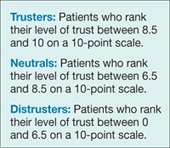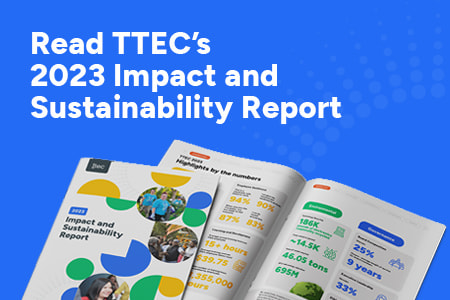Compliance: With patient compliance averaging below 65 percent, according to CapGemini, the U.S. pharmaceutical industry is losing $188 billion annually in revenue as a consequence of patients not taking prescription drugs for chronic conditions. The research shows that building trust with patients has a direct impact on compliance. Trusters tend to be 10 percent more compliant than Neutrals, and Neutrals are 11 percent more likely to be compliant than Distrusters. The spread between Trusters and Distrusters is 21 percent. Enhancing compliance, therefore, has the potential to improve the wellness of the patients and to be a substantial driver of organic business growth.

New products and services: Many pharmaceutical companies have started exploring products and services adjacent to their core pills business. A key success factor of anything new will be patient receptiveness. The research explored examples of services that pharmaceutical companies may offer, such as health and wellness programs, and tools to track medical conditions. The analysis indicates that attitude toward the pharmaceutical companies and their drug trustability can be a factor in patients' acceptance of new products or services from the same pharmaceutical company. Neutral patients are 37 percent more likely than Distrusters and Trusters are 25 percent more likely than Neutrals to use new products or services from the manufacturer of their primary prescription drug.
Selecting a health insurer: Traditionally, patients have had limited options around health insurance selection. But the old model is changing. For example, Medicare Part D allows seniors to choose from several plans based on different factors. And only 6 to 9 percent of seniors chose their prescription plans based on lowest cost. Healthcare reform will likely extend this option beyond Medicare. The research indicates that attitude toward the pharmaceutical companies and their drug trustability can be a factor in choosing the health insurer. Neutral patients are 46 percent more likely than Distrusters, and Trusters are 33 percent more likely than Neutrals to make this choice.






